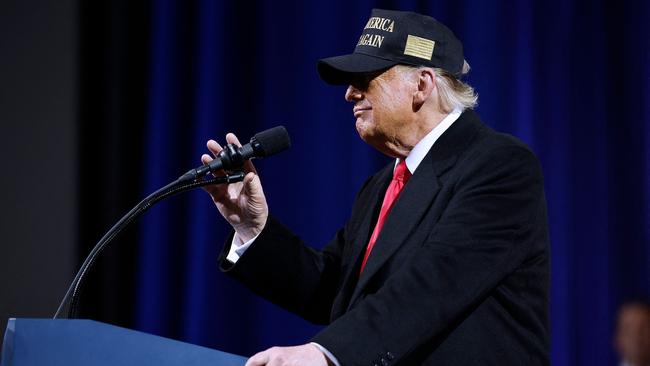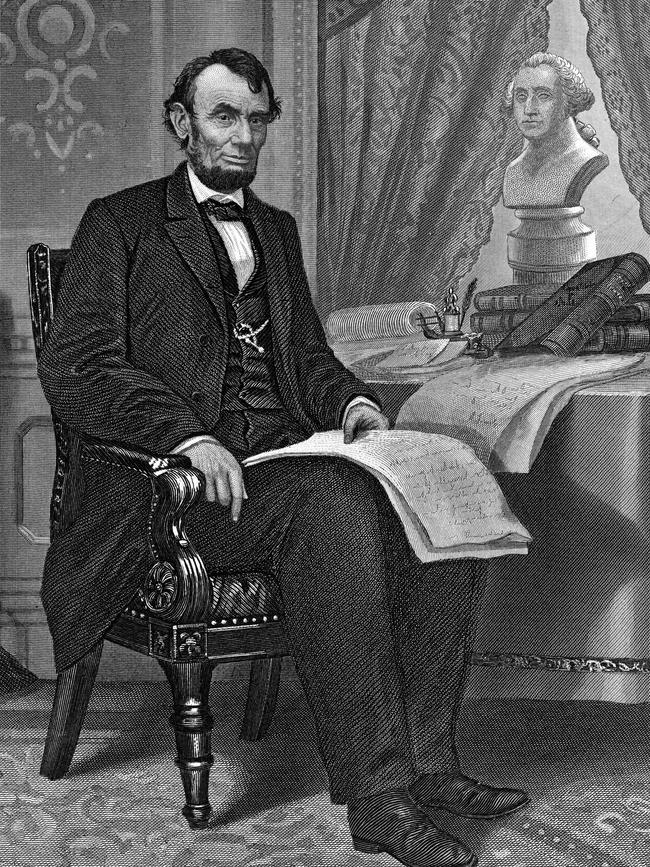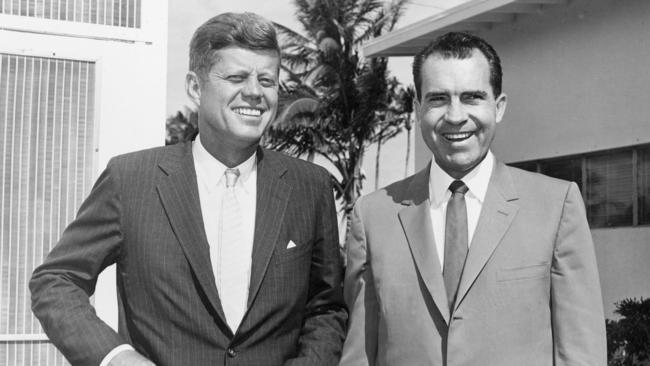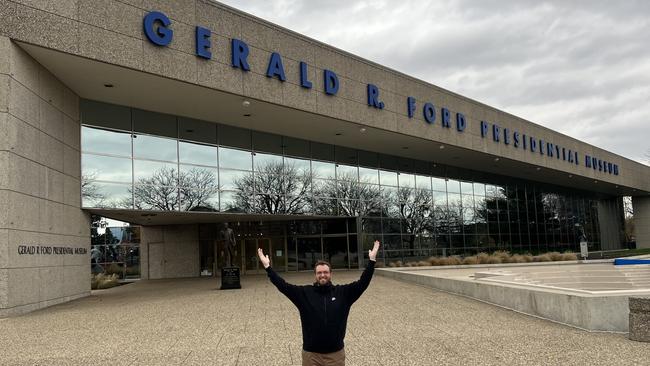
The choice for Americans is clear: Harris may be uninspiring and saddled with being vice-president in an unpopular administration but Trump is morally bankrupt and ethically barren, vain and narcissistic, reckless and dangerous. It is why so many lifelong Republicans, his former vice-president, staff and cabinet officials, and military leaders, cannot support his return to the White House.
The choice for citizens around the world, from Europe to Asia and Australia, is overwhelmingly Harris rather than Trump, according to surveys. Trump has no coherent foreign policy, he idolises dictators and tyrants, and would be unpredictable. His promise to levy 10-20 per cent tariffs on all imports would be ruinous for the global economy.
My view about Trump since he descended on that golden escalator in Trump Tower in July 2015 is well known to readers. He is an utterly grotesque figure, a bully and a braggart who routinely makes false and moronic statements. He boasted about sexually assaulting women and was found liable for sexual assault. He is a convicted felon. He was twice impeached, for trying to shake down Ukrainian President Volodymyr Zelensky and defying democracy.

His management of the pandemic was catastrophic – remember when he suggested injecting disinfectant, shining ultraviolet light on the skin or taking hydroxychloroquine, which the US Food and Drug Administration warned could be dangerous? He trashed historic alliances and showed no respect to democratic leaders. He massively increased debt and deficit. He failed the test of crisis leadership.
What is especially troubling is that Trump diminishes the presidency. No president is without fault or flaws. But they each respected the office, its conventions and traditions, norms and standards of behaviour, and the democratic process. They congratulated their opponents, went to inaugurations of their successors and openings of presidential libraries. Trump did none of this; Harris will.
I’ve had a fascination, even obsession, with the presidency since I was a kid. The rollcall of presidents who provided global leadership, inspired their people with heroic actions or set a moral example enthralled me. The presidency had a capacity to produce men (so far) who played an outsized role in national and international affairs and served as models to others.
Who could deny the virtues and qualities of George Washington, a man who would have been hung, drawn and quartered if the revolution failed? Or the log cabin-to-White House story of Abraham Lincoln, who abolished slavery and preserved the union, and his words that still ring true? Or Franklin Roosevelt, who saved democracy by joining the allies in World War II?
Perhaps it is the genius of Thomas Jefferson, and the moral reckoning history has given him two centuries later? The legend of Ulysses S. Grant, who failed at everything before he was given command of the Union Army, and wrote the most compelling presidential memoirs? Or the tragedy of Richard Nixon, a brilliant and visionary man, undone by petty grievances, inner demons and high crimes?

My interest is both personal and professional. I’ve been to every presidential library run by the National Archives and Records Administration, and turned over hundreds of pages of presidential records. I’ve entered dozens of presidential homes from Washington’s Mount Vernon, Jefferson’s Monticello and James Madison’s Montpelier to the residences of John Adams, Harry Truman, John F. Kennedy, Jimmy Carter, Gerald Ford and Ronald Reagan, and more.
I’ve been to Barack Obama’s White House, scored a ticket to George W. Bush’s inauguration by chance, visited presidential memorials in Washington DC, looked up at the carved faces of the presidents on Mount Rushmore and stood in Independence Hall in Philadelphia where the Declaration of Independence and US constitution were signed.
My favourite presidential memorial, and I’ve visited almost all of them, is General Grant’s mausoleum in New York. I’ve watched an animatronic Lincoln at Disneyland, walked through his house and neighbourhood in Springfield, Illinois, sat on the steps of his grand colonnaded memorial in Washington and peered into the presidential box at Ford’s Theatre where he was shot.
I’ve interviewed presidents Carter and George HW Bush, the children (Luci Baines Johnson) and grandchildren (Clifton Truman Daniel and David Eisenhower) of three presidents, and staff or cabinet members in every presidential administration from Stephen Hess under Dwight D. Eisenhower to John Bolton under Trump. I’ve also interviewed former Secret Service agents Clint Hill and Paul Landis.

It has been thrilling to meet or interview the finest presidential historians, from Robert Caro and Robert Dallek to Doris Kearns Goodwin and Stacy Schiff to Ron Chernow and Joseph Ellis, Richard Norton Smith and Evan Thomas, among others.
I’ve spoken to storytellers Ken Burns and Lin-Manuel Miranda, and directors Oliver Stone and Aaron Sorkin about real and fictional presidents on the big and small screens.
My crates of presidential memorabilia show no bias, nor do my shelves carrying thousands of presidential tomes. Indeed, the presidents I most admire are overwhelmingly Republicans, from Lincoln and Grant to Teddy Roosevelt, Eisenhower and Bush 41. They had integrity, credibility, authority. That is why dislike of Democrats is not sufficient justification for supporting Trump.
The US has often been divided. You can learn that by walking the cobblestoned Freedom Trail in Boston or participating in a re-enactment at Gettysburg – which I did in 2013 – or visiting the Confederate White House or Jefferson Davis’s home, Beauvoir. I’ve talked to civil rights icons John Lewis and Andrew Young about the long struggle for freedom. It is the president who often corrects course.
Trump has no respect for the presidency, its traditions and conventions, and leadership capacity. He dishonoured the presidency. Unlike Harris, he seeks to divide with a dark and violent grievance-based message rather than unite and uplift the nation with hope and possibility. It is telling that no former president or vice-president, or Republican candidate for president, has endorsed Trump.
That is why I hope, and expect, Americans will make the right decision in this most consequential of elections.




The great republic is teetering on a precipice, at a turning point moment, with no previous election more important. Kamala Harris is a conventional centre-left Democratic candidate who believes in democracy and the rule of law; Donald Trump is a populist nativist, xenophobe and misogynist who refused to accept an election outcome, tried to overturn it and incited a riot.